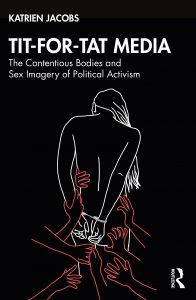-
Tue10Jun202512.00-13.30Faculteitszaal (first floor) Campus Boekentoren, Blandijn, Blandijnberg 2, Ghent University
Dancing Hands - On Neurodivergent Embodied Knowledge by Anna Püschel and dr. Anja Veirman
Lunch seminar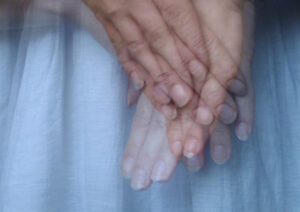 Stimming a Space, visual sketches on stimming documentation, © Anna Püschel, 2022
Stimming a Space, visual sketches on stimming documentation, © Anna Püschel, 2022In the rather recent field of neurodivergent academic writing, the neurodiversity paradigm that treats neurodivergent individuals as equals and entitles them to telling their own story opens new pathways to understanding neurodiversity as a variation of human existence, and brings different ways of thinking-making-being into the discourse. Many authors in this still field choose auto-ethnographic approaches as their methodology in order to disrupt the fictitious dichotomy of normal and pathological, opening their experience to a larger audience and uncovering a sensuous world in constant movement. In her auto-ethnographic artistic research Stimming a Space, visual artist AnnaPüschel explores the entiry neurodivergent bodymind to approach accomodations through an embodied neurodivergent lens. She focuses on stimming (self-regulation) as a powerful tool to create safe spaces and presents it as a radical gesture of selfcare. Her research feeds into current decolonial discourses and serves as an invitation to dwell at the margins of the neurotypical universe.
Anja
Anja Veirman is an art historian/anthropologist who is active on the crossroads of textile studies, global art history and audio-visual ethnography. Onto-epistemologies, relations with the more-than-human, embodied knowledge and co-creation are central to her work.
Anna
Anna Püschel works with photography and texts. Within Fluid Futures, she explores stimming - soothing rhythmical movements - as a way to explore how creative practices can contribute to safer spaces for neurodivergent women in the art world.
LUCA School of Arts. KU Leuven, Gent.
Tuesday 10 June 2025
12h00 - 13h30Join us in person
Faculteitszaal (first floor)
Campus Boekentoren, Blandijn
Blandijnberg 2
Ghent University
DirectionsOrganised by
CRCG - Centre for Research on Culture and Gender -
Tue20May202512.14-13.30Faculteitszaal (first floor) Campus Boekentoren, Blandijn Blandijnberg 2 Ghent University
Hair, Identity, Beauty, and the Self in Muslim Contexts: Emotional Landscapes and Changing Femininities Beyond the Veil, by Lisa Franke
Lunch seminarLisa Franke presents her project proposal submitted to the ERC on how Muslim women’s hair shapes everyday intimate lifeworlds, processes of social transformation, and new religious identities in contemporary Egypt, Lebanon and the United Arab Emirates. By shifting the paradigm from the veil as a marker of inter alia religiosity, the project examines how the attitudes and practices of Muslim women towards their hair condition religious norms and social expectations.
Hair itself remains a neglected theme, despite being central to issues of identity, beauty and processes of individualisation. Even so, there is much contention concerning how Muslim women wear their hair, think and feel about it. Indeed, hair is at the very root of the global contemporary headscarf debate. Hair is both a mundane issue and a disputed one for many women. As such, it is a contentious field that spans the negotiation of gender dynamics, beauty ideals, political orientation, and religious norms.
About the speaker
Lisa Maria Franke is research assistant professor in Islamic Studies at Ghent University in the Department of Languages and Cultures. Her research and teaching focus on the social and intellectual history of Islam and being Muslim in the modern Middle East.Her research interests include everyday history, eschatology, faith and identity, discourse analysis and gender studies; individuality, religious transformation processes and social dynamics; modern Arabic literature; language as a form of mediation in various text forms. Read more
Register and attend online
Click here to register and join on Microsoft Teams
-
Wed30Apr202510:30 - 13:30Aud. Vandenhove Pavilion Charles Vandenhove (Campus Boekentoren) Rozier 1 9000 Gent
“Between revolution and capitulation: an ethnography of everyday queer worldmaking in the Chinese city Hangzhou” captures the everyday lives of queer people and their organizing practices in contemporary mainland China". By Haiyan Huang.
PhD defense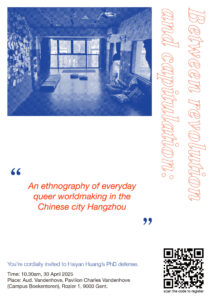
-
Tue29Apr202516-18 PMAuditorium 1 Jan Broeckx, Faculty of Arts & Philosophy, Blandijnberg 2 9000 Gent
Quest for Love in Central Morocco - Young Women and the Dynamics of Intimate Lives - Laura Menin
Book presentationLaura Menin’s ethnography focuses on young women living in the low-income and lower-middle-class neighborhoods of a midsized town in Central Morocco, far from the overt influence of city life. At the heart of the book, Menin draws upon ideas of “love” as an ethnographic object and source of theoretical examination.
She demonstrates that love, as a complex cultural and historical phenomenon shaped through intersecting socioeconomic and political developments, is crucial in thinking through generational changes and debates in Morocco and the Middle East more broadly. What is at stake in the quest for love, she argues, is not only the making of gendered selves and intimate relationships, but also the imagination of social and political life. Read more
About the speaker
Laura Menin is a research associate in the School of Global Studies at the University of Sussex. She has published numerous articles in the Middle East Journal of Culture and Communication, Contemporary Levant, and the Journal of the Royal Anthropological Institute.29 April 2025
16h00 - 18h00 (GMT +1)Join us in person
Auditorium 1 Jan Broeckx
Faculty of Arts
Blandijnberg 2
9000 Gent
DirectionsThis book presentation is part of the Middle East Studies Research Seminar Series
Organised by
Arabic, Islamic and Middle East Studies Middle East Studies at Ghent University
Co-organised by
CARAM - Centre for Anthropological Research on Affect and Materiality
CRCG - Centre for Research on Culture and Gender
-
Mon24Feb202512:00 pmFaculteitszaal (first floor) Campus Boekentoren, Blandijn, Blandijnberg 2, Ghent University
CRCG Lunch seminar with Barbara Čurda: "Feminine Agency and Social Values in Shifting Urban Environments: The Transmission of Odissi dance in Bhubaneswar"
Drawing on ethnographic data from the early 2020s, this presentation explores the relation between women’s agency and their degree of adherence to patriarchal values in an environment subjected to rapid and intense changes. It focuses on women practising Odissi dance, considered by the government of India to be one of the “Indian classical dances”, in the urban context of Bhubaneswar, capital city of the Indian State Odisha, in which these practices thrive.India has undergone rapid socio-economic and technological transformations in the past decades. Moreover, the city of Bhubaneswar has experienced a particular stark growth. This has affected the socio-economic fabric that support Odissi dance practices, based on a social order regulated by pronounced gender asymmetries. How do these changes affect the gendered equilibrium? What are the present constraints and opportunities? How do values and norms evolve in such a context?Barbara Čurda is an anthropologist, and has been working as a Marie Curie fellow on the MSCA-IF-GF project GATRODI* (Gender asymmetry in the transmission of Odissi dance in India – a case study). The project interrogates relational dynamics and conceptions of know-how amongst dance practitioners, using qualitative and ethnographic methods.Her research interests include gender, inequalities, corporeal practices, heritage, and South Asia. She holds a PhD in anthropology from the Université Blaise Pascal (France), and has taught extensively in the higher education sector and notably at the Université Clermont Auvergne (France).This project has received funding from the European Union's Horizon 2020 research and innovation programme under the Marie Sklodowska-Curie grant agreement No. 101033051.Organised by
GCSAS - Ghent Centre for South Asian Studies
CRCG - Center for Research on Culture and GenderDo you wish to attend the seminar in person? Join us at:Faculteitszaal (first floor)
Campus Boekentoren, Blandijn
Blandijnberg 2
Ghent UniversityTo follow online register here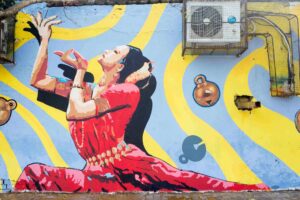
-
Mon09Dec202412:00 - 13:30Ghent University - Campus Tweekerken Room 1.10 Sint-Pietersplein 7 - 9000 Ghent
CRCG Lunch seminar Anandita Pan: "Justice for whom? Gender, Caste, and Intersectionality"
The seminar
The topic of gender justice must begin with the inevitable question: what gender is justice? Linda R. Hirshman asks, “Is the law male?” Hirshman’s question points out how the "maleness" of the legal system affects every woman.Dr. Pan's lecture will focus on gender justice through the lens of intersectionality to emphasize the necessity of recognizing the interconnectedness as well as differences among categories. Intersectionality challenges traditional notions of justice that treat social categories as separate or distinct.
Instead, it calls for an approach to justice that acknowledges how various systems of oppression (e.g., sexism, casteism, classism) intersect and compound one another. Achieving gender justice, therefore, requires addressing these interconnected forms of oppression holistically.
About the speaker
Dr. Anandita Pan is an Assistant Professor in the Department of Liberal Arts, IIT Hyderabad. Her areas of interest are Feminist theory, Gender Studies, and Dalit Feminism. She is the author of Mapping Dalit Feminism: Towards An Intersectional Standpoint (Sage-Stree, 2020) and Aesthetics in India: Transitions and Transformations (Orient Blackswan, 2023). She is the recipient of the President's Award for Best paper at the IAWS conference, 2020.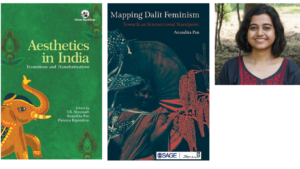
9 December 2024
12h00 - 13h30Join us in person
Ghent University - Campus Tweekerken
Room 1.10
Sint-Pietersplein 7 - 9000 GhentRegister and attend online
Click here to register and join on Microsoft TeamsOrganised by
SANGH - South Asia Network Ghent
CRCG - Center for Research on Culture and GenderContact: Hannah.VandenBroucke@UGent.be
-
Tue03Dec20244:00 pmAmsterdam/online
PhD defense Nika Looman: "Queer late/r life sex Women and non-binary people's unruly stories"

On Tuesday, December 3, 2024, Nika Looman's public defense will take place. We would like to cordially invite you to attend in person or via live stream.
Nika has been working on their research 'Queer late/r life sex. Women and non-binary people's unruly stories' for four years. To conclude this trajectory, Nika will defend their research and receive their doctorate.
After the defense, there will be a reception where you can congratulate Nika. In support of Palestine and in line with the BDS (boycott, divest and sanctions) guidelines, only coffee and tea will be served.
We hope to see you on this special day. If you have any questions about the defense, please do not hesitate to contact us (mars@essb.eur.nl).
About the research
This dissertation centralizes the unruly sexual stories of queer women and non-binary people between the ages of forty-four and eighty-six. Their stories disrupt the limiting and contradicting narratives of ageing as decline or that promise success when sexual attractiveness and sexual availability are maintained late/r in life.By paying careful attention to the entangledness of materiality, discourse, and un/expected relations to sex late/r in life, this dissertation examines how stories of old/er queer women and non-binary people can (re)configure prevailing narratives of ageing, sex, and intimacy.
Nika Looman completed their doctoral research within the ERC-project LiLI 'Later-in-Life Intimacy: Women's Unruly Practices, Places and Representations'at Ghent University's Centre for Research on Culture and Gender.
DetailsDate and time
Tuesday, 3 December 2024 - 16h00 (GMT+1)
After 16h15 it will not be possible to enter the ceremony hall anymore.Join in person
Chapel of the Convent of Saint Agnes
Oudezijds Voorburgwal 229-231
1012 EZ Amsterdam
The NetherlandsJoin the live stream by simply clicking the link below, no registration required
Queer late/r life sex. Women and non binary people’s unruly stories Online. -
Wed20Nov202413:00 - 19:00Paleis der Academiën, Hertogstraat 1, 1000 Brussel
Viering 10 jaar Master Gender en Diversiteit
 Registration is free, but please register your attendance before 20 October
Registration is free, but please register your attendance before 20 October
Please note: programme fully in DutchWe cordially invite you to the 10th anniversary of the interuniversity master's programme Gender & Diversity on Wednesday 20 November 2024.
- We will start in the afternoon with a workshop ‘Refining feedback skills in internship supervision’ for internship mentors from the field.
- Following this, there will be the main programme with an official welcome. We are pleased to announce Gloria Wekker as a keynote speaker. She will take us back and look ahead at developments in Gender and Diversity Studies in the Low Countries. This will be followed by a panel discussion with gender and diversity experts.
- We will conclude with a festive reception.
Details
Date: 20 November 2024
13h00 - 18h00
Paleis der Academiën
Hertogstraat 1
1000 BrusselsQuestions?
master.magedi@ugent.be -
Mon18Nov202412:30 pmFaculty Room, Blandijnberg 2
CRCG Lunch seminar: Christi van der Westhuizen: Why 'right-wing woman' is not an oxymoron: Lessons from the 'volksmoeder' in South Africa
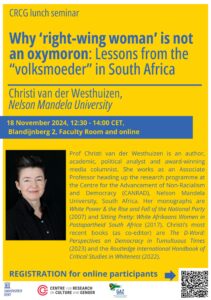
Why ‘right-wing woman’ is not an oxymoron: Lessons from the volksmoeder in South Africa
Christi van der Westhuizen
Centre for the Advancement of Non-Racialism and Democracy, Nelson Mandela University, South Africa
christivdw@mandela.ac.za
Abstract
Ethno-racial populisms currently surging across the globe have driven contestation over gender to a fever pitch. Women’s right to political agency and control over their bodies is under direct attack or being strictly circumscribed. Notably, right-wing women are firmly involved in intensified attempts to reverse the gains of successive waves of feminism. This presentation draws on historical research and interviews to make sense of how women come to advance or resist patriarchal politics. The rise and fall and (unexpected) rise of the Afrikaner nationalist volksmoeder (mother of the nation) in South Africa is illustrative of how women are mobilised and demobilised in the service of nationalisms. Afrikaner nationalist women were more publicly and politically active in the first half of the 20th century than the second half. They vigorously contributed to the version of Afrikaner identity that in 1948 tipped South Africa into the intensified form of colonialism known as apartheid but disappeared from public view after 1948. The volksmoeder assigned feminine care for the family and the volk to women. The flipside of its normalisation of ‘woman/wife-as-mother’ was to return Afrikaner women to the domestic realm with the demand of silence, service, and sexuality purposed for white reproduction, or ‘white sex’. After the transition to constitutional democracy in 1994, the volksmoeder imaginary is unexpectedly bolstered, receiving a revivalist injection from neoliberal and postfeminist versions of motherhood that coax women into an enclave form of nationalism.
Prof Christi van der Westhuizen is an author, academic, political analyst and award-winning media columnist. Her research interests are transdisciplinary, broadly focused on identity, difference, ideology and democracy in postcolonial contexts. She works as an Associate Professor heading up the research programme at the Centre for the Advancement of Non-Racialism and Democracy (CANRAD), Nelson Mandela University, South Africa. In 2022, she was a Visiting Professor at the Research Centre Global Dynamics at Leipzig University, Germany. Her monographs are:
- White Power & the Rise and Fall of the National Party(2007) and
- Sitting Pretty: White Afrikaans Women in Postapartheid South Africa(2017).
Christi’s most recent books (as co-editor) are titled The D-Word: Perspectives on Democracy in Tumultuous Times (2023) and the Routledge International Handbook of Critical Studies in Whiteness (2022). She has published in journals such as Africa Today, Comparativ, African Studies, Critical Philosophy of Race, and Matatu Journal for African Culture and Society. Her Doctorate in Sociology is from the University of Cape Town and she has held associateships with several universities. Christi’s media columns and analysis have featured in both South African and global news outlets.
-
Tue15Oct202412:30 pmFaculty Room, 1st floor, Blandijnberg 2, UGent
Book presentation 'Female Masculinity and the Business of Emotions in Tokyo' by Marta Fanasca (Univ. of Bologna)
Female Masculinity and the Business of Emotions in Tokyo investigates the novel “emotion business” of dansō escorting as a phenomenon emerging between gender performativity and pop-culture, commodified relationships and the wish for self-expression.
Fanasca documents the dreams, ambitions and fears of young crossdresser escorts negotiating their identity with and within the Japanese society, as well as those of crossdresser escorts’ clients: women looking for the perfect man and the opportunity to experience emotions. Combining anthropological, sociological and gender studies theories with an ethnographic approach, Fanasca argues that dansō crossdressing is the tool used by a sector of Japanese women to resist the heteronormative and patriarchal society and its expectations, while reinventing themselves and their identities looking for self-actualization.
Female Masculinity and the Business of Emotions Tokyo is an interdisciplinary work which will interest both scholars and students of Japanese studies, gender studies, and anthropology.
Organised by:
CRCG - Centre for Research on Culture and Gender
BOCULT - Centre for Research on Body Cultures in Motion
CARAM - Centre for Anthropological Research on Affect and Materiality
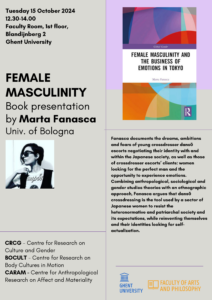
-
Wed28Feb202412:00:00-13:30:00Faculteitsraadzaal, Blandijnberg 2, 9000, Ghent
CRCG lunch seminar: The Dialectics of Reproductive Injustice in Palestine
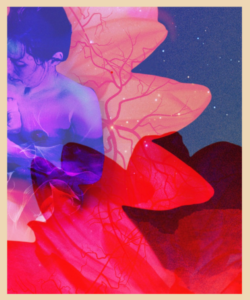
The point of departure of this seminar is the analytical and political urgency to understand Israel/Palestine through the feminist lens of reproductive justice. The State of Israel is known internationally as having adopted remarkably “pronatalist” policies since its creation in 1948, aimed at encouraging high birth rates by offering financial incentives for reproducing large families, welfare benefits for (working) mothers, high child allowances and generous subsidies for assisted reproductive technologies including in vitro fertilisation, egg donation, surrogacy, prenatal and pre-implantation genetic testing, posthumous assisted reproduction, etc. However, critical scholars have been arguing for decades that Israel’s pronatalism is selective, and mostly designed to benefit its European-descended Jewish Israeli citizens and not Palestinians who are framed as a “demographic threat”. In addition to cultural paradigms of “Jewishness” that refer to the importance of reproduction in Jewish culture, religion, and history, this seminar foregrounds a settler colonial analysis of Israel’s stratified reproductive regimes. Situating the crucial role of older and newer technologies of (assisted) reproduction, fertility, and family (un)making within Zionism’s century-old yet ongoing settler colonial history, I will argue that the creation and consolidation of a demographically Jewish state in Israel/Palestine materializes at the expense of Indigenous Palestinian life and reproduction. Using several case studies of reproductive technologies, including egg donation, surrogacy and posthumous sperm-retrieval, I will illustrate how Israel’s selective pronatalism is partly rooted in structures of demographic replacement of Palestinians their collective means and infrastructures of life, biological and social reproduction. (Image credit to @marjoleinpijnappels)
About the speaker
Siggie Vertommen works as a lecturer in gender and global health at the University of Amsterdam and as a postdoctoral researcher at the Centre for Research on Culture and Gender at Ghent University. She conducts feminist research into the global politics of (assisted) reproduction from Israel/Palestine to Georgia and Belgium.Time: 12:00-13:30, 28 February
Venue: Faculteitsraadzaal, Blandijnberg 2, 9000, Ghent
To attend: The seminar is free to anyone interested but please register HERE so we know how many people to expect.
Find and sign the statement for Reproductive Justice for Palestine here: https://reprosist.org/.../resistance-is-fertile-endorse.../
-
Tue16Jan202412-13:30:00Faculteitszaal (1st floor), Blandijnberg 2, Ghent, 9000
Lunch Seminar/Book Talk: Irish Women’s Prison Writing: Mother Ireland’s Rebels, 1960s-2010s
In this book talk, Prof. Red Washburn will talk about their recently published book Irish Women’s Prison Writing: Mother Ireland’s Rebels, 1960s-2010s. The sharing will be around 30 minutes, followed by discussions & QA sessions. The talk is free to anyone interested but please register HERE so we know how many people to expect. Below you can find more detailed information about the book and the author.


About the book
Irish Women’s Prison Writing: Mother Ireland’s Rebels, 1960s-2010s explores 50 years of Irishwomen’s prison writing, 1960s-2010s. It connects the work of women leaders and writers in the Six Counties of Ireland, especially during the Troubles. It analyzes political communiqués/ petitions, news coverage, prison files, personal letters, poetry and short prose, and memoirs. It highlights the personal correspondence, auto/biographical narratives, and poetry of the following key women: Bernadette McAliskey, Eileen Hickey, Mairéad Farrell, Síle Darragh, Ella O’Dwyer, Martina Anderson, Dolours Price, Marian McGlinchey, Ann and Eileen Gillespie, Roseleen Walsh, and Margaretta D’Arcy. It also includes interviews. This project builds on different fields and discourses to reimagine gender and genre as central to an interdisciplinary and intersectional prison archive. It repositions Irish women and their work in order to accurately archive social movements for civil rights and cultural productions about them – and this tradition is relevant even now during this moment of transatlantic solidarity with #MeToo and the Black Lives Matter Movement, including in Ireland, post-Easter Rising Centennial, as part of the big conversations happening now around the impacts of political repression and state attacks on social justice advocates and the harms of the carceral state.
About the speaker
Red Washburn (they/he) is Professor of English and Women’s and Gender Studies at Queens College of the City University of New York. They are Affiliate Faculty in Women’s and Gender Studies at the Graduate Center (CUNY). His book Irish Women’s Prison Writing: Mother Ireland’s Rebels, 1960s-2010s was published by Routledge. Red’s articles appear in Journal for the Study of Radicalism, Women’s Studies: An Interdisciplinary Journal, and Journal of Lesbian Studies. Their essays are in several anthologies, including Theory and Praxis: Women’s and Gender Studies at Community Colleges, Introduction to Women’s, Gender & Sexuality Studies: Interdisciplinary and Intersectional Approaches, and Trans Bodies, Trans Selves: A Resource for the Transgender Community. They are the co-editor of Sinister Wisdom’s Dump Trump: Legacies of Resistance, 45 Years: A Tribute to Lesbian Herstory Archives, and Trans/Feminisms. Finishing Line Press published their poetry collections Crestview Tree Woman and Birch Philosopher X. They co-edited WSQ’s issue Nonbinary (forthcoming Fall 2023). He received an ACLS/ Mellon fellowship for their next project Nonbinary: Tr@ns-Forming Gender and Genre in Nonbin@ry Literature, Performance, and Visual Art.
-
Fri01Dec20231:30 amHybrid (see details below)
CANCELLED--Researching Intimacy--Thoughts from Fieldwork in the Nursing Home
Lunch seminarLatest update on 30 November:
For those who have registered, please note, this lunch seminar is CANCELLED and will be re-scheduled because our speaker got sick and cannot make it. We will post more information when a new date is selected
About the seminar
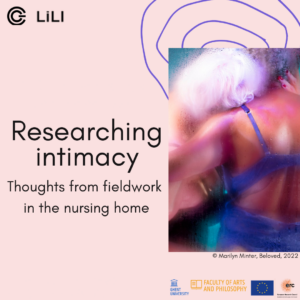
During this CRCG lunch seminar, drs. Gabriëlle de Pooter shares insights from her currently ongoing fieldwork on intimacy and sexuality in a nursing home. Many spaces through which older women move might be considered ‘unsexy’ as they are tied up with stereotypes of older women being asexual. One such space is the nursing home, a common place of living for many older women. However, as geographers have noted, no place is truly devoid of sexuality. So how do desire, longing and refusal emerge through the cracks of institutionalised regimens of care? During her seminar, Gabriëlle reflects on the research process, methods used, emerging themes in the data, and ethical challenges when psychiatric diagnoses come into play. There will also be room for discussion, exchange and feedback.
About the speaker
Gabriëlle de Pooter is a doctoral researcher working in the ERC-project 'Later-in-Life Intimacy: Women's Unruly Practices, Places and Representations' (LiLI). Her specific research within the project locates itself at the intersection of gender, sexuality, aging, and their relation to space and place. Get to know more about LiLI and the research team via: http://lili.ugent.be
Participation format
This is a hybrid event.
For both online and offline participants, please register via the link here so we can better accommodate you.
- On-campus: Faculteitszaal, Blandijnberg 2, 9000 Ghent
- Online: you will receive an automatic meeting link upon your registration. -
Mon23Oct202312:30 pmAuditorium F, Building Technicum 2, Sint-Pietersnieuwstraat 41, 9000 Gent
Lecture: Stories [that] Matter: Migrant Academics’ Narratives of Precarity and Resilience in Europe
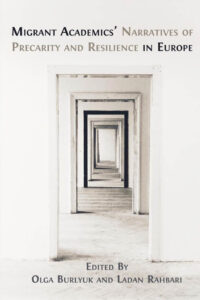 Migrant Academics’ Narratives of Precarity and Resilience in Europe grew out of the accumulation of knowledge, experiences, and frustrations of political sociologist Ladan Rahbari, who was born in Iran, and political scientist Olga Burlyuk from Ukraine.
Migrant Academics’ Narratives of Precarity and Resilience in Europe grew out of the accumulation of knowledge, experiences, and frustrations of political sociologist Ladan Rahbari, who was born in Iran, and political scientist Olga Burlyuk from Ukraine.The result is a walk-through of precarity, racialisation, systematic forms of discrimination and gendered hierarchies written and narrated by migrant academics from the Global South working in universities of the Global North. Building on precarity as a critical concept for challenging social exclusion or forming political collectives, the authors move away from conventional academic styles, instead adopting autobiography and autoethnography as methods of intersectional scholarly analysis. This approach creatively challenges the divisions between the system and the individual, the mind and the soul, the objective and the subjective, as well as science, theory, and art.
This lecture will be given by the book editors:
- Olga Burlyuk, professor of Europe's external relations at the Department of Political Science at University of Amsterdam.
- Ladan Rahbari, professor of Sociology at the Department of Sociology at University of Amsterdam
Programme?
12h30 Lecture by prof. dr. Ladan Rahbari & prof. dr. Olga Burlyuk
13h30 Q&A
14h00 End
When?
Monday 23rd of October from 12:30 to 14:00
Where?
Auditorium F, Building Technicum 2, Sint-Pietersnieuwstraat 41, 9000 Gent
For whom?
Accessible for everyone (inside and outside UGent)
Register?
Free admission but registration is required via this link: https://event.ugent.be/registration/LectureLadanRahbariandOlgaBurlyuk
-
Thu19Oct202311:30 amFaculteitsraadzaal, Blandijnberg 2, 9000, Ghent
Decolonising FGC programmes: From 'grandmother-exclusionary bias' to 'grandmother-inclusive' intergenerational approaches
Lunch seminarLunch seminars are informal presentations where internal and visiting researchers present their work during lunch. You are welcome to bring your lunch along! We offer tea and coffee to go with it. The seminars are hybrid and take place on campus and online. Please register by sending an email to haiyan.huang@ugent.be
The seminars are open to all, PhD students, postdocs, senior researchers, and other interested individuals.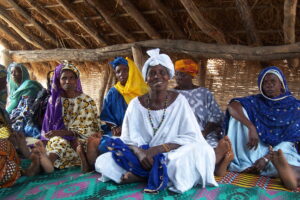 About the lunch seminar
About the lunch seminarGrandmother-exclusionary bias” - or the side-lining of female elders as change agents within programmes - represents a major obstacle to the success of programmes that aim to end Female Genital Cutting (FGC). Grandmother-exclusionary bias runs counter to the extensive authority and decision-making roles that grandmothers wield in relation to FGC and child marriage in sub-Saharan Africa. It also goes against insights from systems theory and meta-evaluations of FGM/C eradication efforts which stress that sustained change requires engaging those who wield authority over gender and social norms. I use postcolonial and decolonial theory to explain the negative assumptions about grandmothers which underpin grandmother-exclusionary bias, and provide recommendations for designing grandmother-inclusive, intergenerational community-led programmes.
About the speaker
Dr Anneke Newman works as a postdoctoral fellow at the Department of Conflict and Development Studies at Ghent University. Before that she worked as a Teaching Fellow at Sussex and a FNRS-funded postdoctoral researcher at the Laboratoire d'Anthropologie des Mondes Contemporains (LAMC) at the Université Libre de Bruxelles (ULB). Newman's current research is a decolonial analysis of knowledge production and policy-making related to Female Genital Mutilation/Cutting (FGM/C) and child marriage. Her previous projects investigated educational decision-making involving secular and Islamic schools, and the education-migration-development nexus, in northern Senegal. Her research focuses on the coloniality of development policy, decolonial alternatives, action research and participatory approaches.
(picture credit Judi Aubel, Grandmothers of Vélingara)
-
Wed21Jun20239:30 amHet Pand, Ghent
Symposium: Islamic ethics & living in ethnic and cultural diversity
Conferences and symposia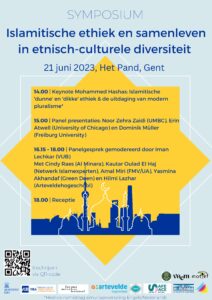
CALL FOR PAPERS
In the last decades, anthropological scholarship on Islam has given considerable attention to ethics and Muslim self-fashioning. In the context of Muslims in Europe the ethical turn was most productive in relation to limitations of secular/liberal national regimes (e.g. Fadil, 2011; Jouili, 2015), various forms of governmentality by state and non-state actors (e.g. Ahmad & El-Yousfi, 2021), and in relation to gender and sexual practices (e.g. Amir-Moazami, Jacobsen, & Malik, 2011; Lechkar, 2022). Recently, proposals were made for an anthropology of Islam that takes faith, divinity and God more seriously, for instance, by critically interrogating anthropologists’ methodological atheism (Willerslev & Suhr, 2018). Or by suggesting to devote more attention to the ‘power of God’ by examining understandings of human-divine relations, and the ways theology shapes human interactions through God’s presence and mediation (Schielke, 2019). The question has been raised as to how we can discern and discuss the shapes of an ‘autonomous Islamic tradition’ in Europe, while moving beyond foundational concerns with Muslims’ sameness/Otherness (Fadil, 2019).
The goal of this day is to reflect further on current approaches in the anthropology of Islam, particularly by foregrounding Islamic faith, spirituality and ethics, and the conditions of life in superdiverse contexts. How can anthropologists study everyday life but also the role of Islamic ethics in environments marked by multiple forms of cultural and religious difference? More generally, how can both disciplines - Islamic theology/ethics and anthropology – be brought into a productive dialogue and conversation? We welcome presentations that discuss empirical research or theoretical reflections. Presentations of findings, work in progress and think pieces are all welcome.
Keynote: Mohammed Hashas (LUISS University of Rome)
Roundtable: Samuli Schielke (Leibniz-Zentrum Moderner Orient (ZMO), Martijn de Koning (Radboud University Nijmegen), Mieke Groeninck (KU Leuven; Odisee University College), Merve Reyhan Kayikci (KADOC- KU Leuven)
Please send your abstracts (250 words) and short biography (100 words) to an.vanraemdonck@ugent.be & iman.lechkar@vub.be before May 7th, 2023. Feel free to address us with any questions. Decision notifications will be sent at latest by May 14th 2023.
Convenors: An Van Raemdonck & Iman Lechkar
PROGRAM
Download the full program here: program + abstracts
PART 1 Anthropology’s encounters with Islamic ethics/theology (Eng.)
9.30 Welcome and introduction
9.45 – 11.15 Roundtable 1 with Samuli Schielke (Leibniz-Zentrum Moderner Orient (ZMO), Martijn de Koning (Radboud University Nijmegen), Mieke Groeninck (KU Leuven; Odisee University College), Merve Reyhan Kayikci (KADOC- KU Leuven)
11.15 - 11.30 Coffee
11.30 – 12.45 Panel 1 Amin El Yousfi (Cambridge University), Hakan Çoruh (Charles Sturt University), Shajeem Muhammed Fazal Pallikkara Veettil (Indian Institute of Science Education and Research), Derya Iner (Charles Sturt University).
12.45 – 14.00 Lunch break
PART 2 The role of Islamic ethics in the lives of Muslims in Europe (Eng/NL)*
14.00 – 15.00 Keynote Mohamed Hashas “On Islamic thick and thin ethics and the challenge of modern pluralism”
15.00 – 16.00 Panel 2 Paper presentations: Noor Zehra Zaidi (UMBC), Erin Atwell (University of Chicago), Dominik Müller(Freiburg University), Kim Lecoyer (Odisee University College).
16.00 – 16.15 Coffee
16.15 – 18.00 Roundtable 2 (NL) with Muslim civil society organisations “The role of Islamic ethics in everyday life”
With Cindy Raes (Al Minara), Kautar Oulad El Haj (Netwerk Islamexperten), Amal Miri (FMV/Antwerp University), Yasmina Akhandaf (Green Deen) en Hilmi Lazhar (Arteveldehogeschool).
18.00 – 20.00 Reception
*Live translation English/Dutch will be provided.
This event is free and all are welcome to attend!
Please register here: https://www.eventbrite.nl/e/symposium-islamic-ethics-living-in-ethnic-and-cultural-diversity-tickets-623489492857
For questions or more information, please contact An Van Raemdonck, an.vanraemdonck@ugent.be
-
Mon19Jun202312-13:30Hybrid
Other pathways of mesoamerican tradition: An autoethnography and affective ethnography on the spirituality of a migrant farmers family from Ahauacatlán de Guadalupe
Lunch seminar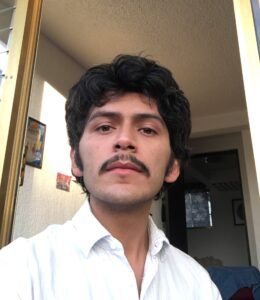 During this lunch seminar Manuel will present some of his advances on research about the relation of his family with spiritual practices from mesoamerican tradition as a point of inquiry from autoethnography and affective ethnography. Since the articulation of the methodology required a necessary ethical reflection, his starting point on the relationship with family members and himself for the research has been one of its main axes along the project. At the same time, the inquiry into his family history opened the way to understand his own situated relations to the colonization process that many people have gone through in his country. From this perspective, his actual focus is to understand the relation between coloniality, the effects of policies of mestizaje, the potentiality of spirituality, and the way in which his family keep certain vitality of the Mesoamerican tradition even when they as farmers, are not part of any indigenous group.
During this lunch seminar Manuel will present some of his advances on research about the relation of his family with spiritual practices from mesoamerican tradition as a point of inquiry from autoethnography and affective ethnography. Since the articulation of the methodology required a necessary ethical reflection, his starting point on the relationship with family members and himself for the research has been one of its main axes along the project. At the same time, the inquiry into his family history opened the way to understand his own situated relations to the colonization process that many people have gone through in his country. From this perspective, his actual focus is to understand the relation between coloniality, the effects of policies of mestizaje, the potentiality of spirituality, and the way in which his family keep certain vitality of the Mesoamerican tradition even when they as farmers, are not part of any indigenous group.Manuel Antonio Guerrero García is a PhD student on Anthropological Sciences at the Metropolitan Autonomous University- Iztapalapa UAM-I, in Mexico City. He has a training on social anthropology and history. Specialist on anthropology of culture, his principal interest is on symbolic anthropology, religion studies, gender, decoloniality, policies of citizenship and raciality.
This lunch seminar will be hybrid. You can join on-campus at: meeting room Panopticon, Blandijnberg 2, 9000 Gent
Or follow online via MSTeams. You can register here
-
Thu25May202312:00 pmHybrid
CGRC Lunch Seminar "Tit-for-Tat Media: The Contentious Bodies and Sex Imagery of Political Activism"
Lunch seminarAbout the seminar
Tit-for-Tat Media examines a visual-sexual turn in social media discourses in the field of online activism with a particular focus on the extraordinary protest years of 2018-2020. The book presents a socially engaged theory and includes case-studies on activist movements such as the Euro-American alt-right, the pro-democracy movement in Hong Kong, and revolutionary artists in China. It reveals how visual cultures, including gendered or sexualized imagery, are utilised to influence public perception. The talk will zoom in on the role of sex-focused visuals used during the Hong Kong Anti-Extradition movement of 2019 and coinciding with a radicalized “laam chau” doctrine. (“If we burn, you will burn with us”). It will outline the wider techno-political contexts of these visuals and also make a plea for archiving and studying them despite their highly contentious and ephemeral nature. It will discuss research methods of “historicizing” and “humanizing” social media visuals by positioning them as catalysts for geo-political transformations and sex/gender justice. It will also ponder a shift in a researcher’s methods of online ethnography from open and affective encounters or observations towards a cautious handling of highly polarized and politicized materials.
Venue
- online: https://teams.microsoft.com/registration/3hyB1-_sbEmPkaF4YkG5nA,OjWm1ICrgUWiRDBCbeZ5fw,F1Dm7yMhBUCTFq4zIOqs1Q,Wu3QeJpnOUyQpSTw4PSJDQ,sCqyp3xylUqP87c5xu1cyQ,nwdJl57nOUCdi9deQxl6eA?mode=read&tenantId=d7811cde-ecef-496c-8f91-a1786241b99c
- on-campus: Faculteitzaal, Blandijnberg 2 (1st floor), Ghent, 9000, Belgium
Time
12:00pm - 13:30 pm (CET), 25 May 2023
About the speaker
Katrien Jacobs is Adjunct Associate Professor in Cultural Studies at the Chinese University of Hong Kong and Research Associate in the Department of Languages and Cultures at the University of Ghent. Jacobs has lectured and published widely about sexuality and gender in and around digital media, contemporary arts and online activism. She received several Hong Kong government-funded GRF grants and authored four books about Internet culture and gender/sexuality. Jacobs is also an artist-scholar who has produced documentaries and performance art pieces alongside her academic and ethnographic fieldwork, which can be accessed on www.katrienjacobs.com
-
Mon27Mar202312-13:30Faculteitzaal, Blandijn 2 (1st floor)
Caring for the patient, caring for the nation: the figure of the care worker in a language training for migrant job seekers
Lunch seminarIn this lunch seminar, Sara Nyssen will talk about her ethnographic research in one of the trainings of non-Dutch speaking care workers. In order to address unemployment among migrant job seekers as well as shortages in the care sector, the Flemish employment service organizes language trainings to prepare non-Dutch speaking job seekers for an education and subsequent employment as a nurse or caregiver. My ethnographic research in one of these trainings shows that knowledge of Dutch was by no means the sole criterion for selection and evaluation: assessment of job seekers was (partly) based on whether they were seen as good (future) care workers. As such, there was a lot of attention for job seekers’ selves in the course, specifically through the use of psychological terminology. In this lunch seminar I will argue that this concern for care workers’ selves cannot be separated from a concern for the people they have to take care of. I will explore what kind of patient emerges from the image of the ideal care worker, and what this reveals about how care work is imagined, and about who is (and isn’t) seen as suitable for care work.
About the speaker
Sara Nyssen holds a master’s degree in social and cultural anthropology and is currently a PhD researcher in sociolinguistics at Ghent University. Her research is an ethnography of a language training for the care sector aimed at migrant job seekers, with a focus on language, labor and personhood.
This lunch seminar will be on-campus only and it will take place at the faculty room of Blandijn (Faculteitszaal, Blandijnberg 2, 9000 Gent). You can register sending an email at carla.besorabarti@ugent.be
-
Mon20Feb202312-13:30Faculteitszaal, Blandijnberg 2, 9000 Gent
Pseudo-autobiography and sex negativity in Kathy Acker
Lunch seminar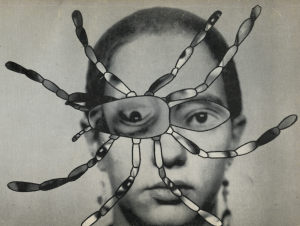
Cover of The Childlike Life of the Black Tarantula by the Black Tarantula (Acker’s pseudonym) Tessel Veneboer is a PhD student in English Literature at Ghent University. She specializes in queer theory and experimental literature and is a founding member of the Sex Negativity research collective at ASCA. She is currently working on a dissertation on Kathy Acker (supported by FWO).
Kathy Acker’s pseudo-autobiographical writing of sex work challenges the sex-positive politics of écriture féminine as well as a queer politics of embodied writing. Acker’s literary work is often read as sex-positive due to her experiments with masturbatory writing, depiction of graphic sex scenes and interest in s/m relations. My dissertation argues that the avant-garde convictions of Acker’s formal innovation are closer to “sex negativity” as they reveal the structural negativity and the nonsovereignty of the subject, “exemplified in the sexual encounter” (Edelman and Berlant 2013). If sex-positive feminism asks how sexuality can be expressed and affirmed, Kathy Acker’s sex negativity lies in a distrust of knowledge of the self. The radical pessimism of Acker’s work is not directed against sex itself, but refuses to treat sex as a moral issue and instead questions the conditions and implications of self-knowledge and the autobiographical subject.
This lunch seminar will be on-campus only and it will take place at the faculty room of Blandijn (Faculteitszaal, Blandijnberg 2, 9000 Gent). You can register sending an email at carla.besorabarti@ugent.be
-
Thu26Jan202312- 13:30Hybrid. On campus: Faculteitszaal, Blandijnberg 2 9000 Ghent
The Anger Turn: Towards a New Perspective on Feminist Rage
Lunch seminar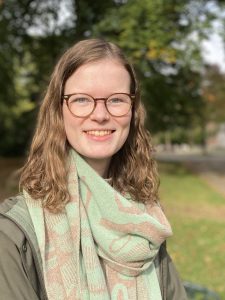
Sigrid Wallaert During this lunch seminar, Sigrid Wallaert will present her research on feminist anger. In the last few years, after the peak of the #MeToo movement especially, angry women are everywhere. From women’s marches to women’s strikes, women are taking to the streets with their anger and refusing to quiet down. In my research, I take this trend as a starting point to develop the concept of an anger turn (in partial parallel with Sara Ahmed’s happiness turn). This anger turn is characterised by a sudden prominence of anger in the public eye on four main fronts: publishing, media, academia, and politics. However, there is something special about this anger. I outline the concept of feminist anger as a type of activist anger with feminist goals and purposes. This anger is forward-looking, collective, and potentially apt, and should therefore be seriously considered for its communicative value.
Sigrid Wallaert is a PhD researcher in philosophy at Ghent University and FWO Flanders. She holds a master’s and research master’s degree in philosophy. In her PhD project, she is delineating feminist anger as a potentially productive concept, and examining what its value can be through the framework of epistemic injustice. Get to know more about the speaker on her website: www.sigridwallaert.com
Follow the seminar:
On-campus: Faculteitszaal, Blandijnberg 2
Online: interested participants can register and join on Microsoft Teams
-
Mon12Dec202212-13:30Hybrid. On campus: Faculteitszaal, Blandijnberg 2 9000 Ghent
CANCELLED | Tit-for-Tat Media and the Hong Kong Meltdown
Lunch seminar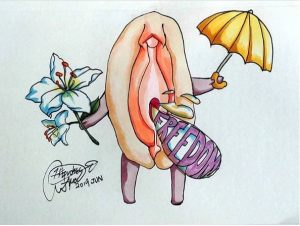 In this talk, Katrien Jacobs will discuss a polarization in social media discourses and sexual politics in the field of online activism. Political activists across the political spectrum are using online visual cultures as “extreme speech” to target each other and as a mechanism of emotional release and social cohesion. The talk will zoom in on the role of sex-focused visuals used during the Hong Kong Anti-Extradition movement of 2019 and coinciding with “a highly radicalized “laam chau” doctrine. (“If we burn, you will burn with us”). It will outline the wider techno-political contexts of these visuals and also make a plea for archiving and studying them despite their highly contentious and “rubbish-like” nature. It will discuss research methods of “historicizing” and “humanizing” this imagery by positioning them as catalysts for radicalized movements, geopolitical transformations and sexual well-being. At the same time, it will ponder a shift in a researcher’s methods of online ethnography from open and affective encounters or observations towards a cautious handling of highly polarized and politicized materials.
In this talk, Katrien Jacobs will discuss a polarization in social media discourses and sexual politics in the field of online activism. Political activists across the political spectrum are using online visual cultures as “extreme speech” to target each other and as a mechanism of emotional release and social cohesion. The talk will zoom in on the role of sex-focused visuals used during the Hong Kong Anti-Extradition movement of 2019 and coinciding with “a highly radicalized “laam chau” doctrine. (“If we burn, you will burn with us”). It will outline the wider techno-political contexts of these visuals and also make a plea for archiving and studying them despite their highly contentious and “rubbish-like” nature. It will discuss research methods of “historicizing” and “humanizing” this imagery by positioning them as catalysts for radicalized movements, geopolitical transformations and sexual well-being. At the same time, it will ponder a shift in a researcher’s methods of online ethnography from open and affective encounters or observations towards a cautious handling of highly polarized and politicized materials.About the speaker:
Katrien Jacobs is adjunct associate professor and research associate at Chinese University of Hong Kong and Ghent University. She is leading scholar of sexuality and gender studies alongside emerging digital cultures and social movements. Her book “Tit-for-Tat Media: The Contentious Bodies and Sex Imagery of Political Activism” was published by Routledge in June 2022. Her work can be found at www.katrienjacobs.comFollow the seminar:
Online: interested participants can register and join on Microsoft Teams
On-campus: Faculteitszaal, Blandijnberg 2
-
Thu08Dec20229 am - 6 pm Campus Boekentoren, Building Blandijn, Faculty Room, Blandijnberg 2, 9000 Gent
Symposium "Decolonizing Contemporary Women’s Spirituality" (2022)
Invited speakers: Prof. Amanda Lucia (University of California-Riverside), Dr. Kavita Maya (University College London) and Dr. Cassandra Ellerbe (Bard College Berlin)
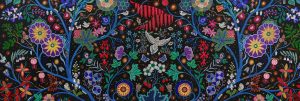
The Wisdom of the Universe by Christi Belcourt, 2014
-
Mon21Nov202212-13:30Hybrid. On campus: Faculteitszaal, Blandijnberg 2 9000 Ghent
Incomplete lives: Islamophobia in Belgium as the governance of Muslim subjectivities and restriction of life aspirations
Lunch seminar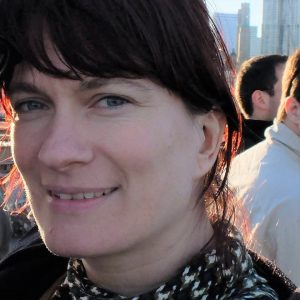 In this lunch seminar, An Van Raemdonck will present her research on experiences of racism and Islamophobia among Muslim minorities in Belgium. While phenomena of discrimination have been widely documented, in-depth qualitative research remains scarce. Findings are based on forty semi-structured interviews conducted between 2020-2021 with Belgian Muslims who are second and third-generation immigrants. Education appears as a prime domain where interviewees experience discrimination and racism, resulting in the restriction of life aspirations. The problematization of Muslim subjectivity is discussed through women’s understandings of job acceptance on the condition of hijab removal as a rejection of the (Muslim) self. Respondents’ prospects of the future are therefore afflicted and some express the desire to leave Belgium in search of better life conditions. This analysis refines our understanding of the two main rationales of Islamophobia as governmentality – assimilation and separation – with the intertwined dimensions of governance of Muslim subjectivity and restriction of life aspirations.An Van Raemdonck is postdoctoral researcher at the Centre for Research on Culture and Gender. Her current research project focuses on Islamic ethics, Islamic conviviality and the ethics of living together in diversity.The seminar is hybrid. You can follow on campus or online. Please register here.
In this lunch seminar, An Van Raemdonck will present her research on experiences of racism and Islamophobia among Muslim minorities in Belgium. While phenomena of discrimination have been widely documented, in-depth qualitative research remains scarce. Findings are based on forty semi-structured interviews conducted between 2020-2021 with Belgian Muslims who are second and third-generation immigrants. Education appears as a prime domain where interviewees experience discrimination and racism, resulting in the restriction of life aspirations. The problematization of Muslim subjectivity is discussed through women’s understandings of job acceptance on the condition of hijab removal as a rejection of the (Muslim) self. Respondents’ prospects of the future are therefore afflicted and some express the desire to leave Belgium in search of better life conditions. This analysis refines our understanding of the two main rationales of Islamophobia as governmentality – assimilation and separation – with the intertwined dimensions of governance of Muslim subjectivity and restriction of life aspirations.An Van Raemdonck is postdoctoral researcher at the Centre for Research on Culture and Gender. Her current research project focuses on Islamic ethics, Islamic conviviality and the ethics of living together in diversity.The seminar is hybrid. You can follow on campus or online. Please register here. -
Wed16Jun202112:00:00- 13:00:00Zoom
Confronting the unspoken in black women’s sexuality in contemporary South Africa by Memory Mphaphuli
Lunch seminarWithin the context of black families, candid talks about women’s sexuality continue to be restricted, with the exception of pithy exhortations that aim to scare young women from experimenting sexually. Many other aspects of sexuality are supressed through various discursive strategies. By drawing upon the narratives of the lived experiences of two generational cohorts of black women (between the ages of 20-30 and 40-62), this study identified some of the discourses that black mothers and their daughters use to shape their understanding of sexuality in contemporary South Africa. Findings show that silence and restrictions characterise the way knowledge about sexuality is communicated to women in different age groups. Importantly, insights from these black women show that female sexuality continues to be heavily influenced by traditional ideas about respect, marriage, safe sex and diseases. Collectively, the narratives revealed that mothers and their daughters simply do not have the words to encourage a positive expression of sexuality, that is, a language to talk affirmatively about sexuality. Young women especially end up holding evasive and ambivalent views about their sexuality, with a decreased sense of sexual self-awareness and agency.
Memory is a doctoral candidate in the Department of Sociology at Ghent University. She identifies herself as a feminist sociologist who is intrigued by different forms of social inequalities that are linked with gender and (hetero)sexuality specifically. She is most interested in studying how gender and sexuality intersect with other social phenomena such as race and class.
-
Thu27May2021Zoom
Family planning and the 'global political economy of fertility': The case of Italy (1945-1975); by Maud Bracke
Lunch seminarhe seminar investigates the Italian 'family planning' movement - its ideologies, programmes and impacts - as a case study illustrating the global interconnectedness of discourses of sexual modernisation in the early Cold War era. While the Italian FP movement was highly impactful in campaigning for the legalisation of birth control (1971), its ideology, strongly influenced by transnational networks advocating population control in the Global South, was marked by a consistent social hierarchisation of reproductive bodies. The case study forms part of a AHRC Leadership Fellowship project on the emergence of notions of reproductive rights in Europe in the global context (1945-1995).
Maud is a Reader in Modern European History at the University of Glasgow, Scotland, and specialises in social, political and gender history of Europe after 1945. She holds a PhD from the EUI Florence and has published on European second-wave feminism, 1968, women and work, West European communism in the Cold War. She leads Glasgow's Centre for Gender History.
-
Mon10May2021Zoom
Gender, Sexuality and Young People’s Social Media Practices; by Burcu Korkmazer
Lunch seminarBurcu is a doctoral scholar at the Centre for Cinema and Media Studies at Ghent University. Her research focuses on how social media such as Instagram and Snapchat are affecting the discourses, media practices and identity politics of young people. Powerful identity axes such as gender, ethnicity, sexuality and religiosity are discussed and studied in relation to sensitive topics as sexual morality, diversity and gendered visibility within digital youth cultures.
-
Mon12Apr202112:00 - 13:00Zoom
Gender, relationships and sexuality. An empirical study of the lived experiences of young catholic women; by Eline Huygens
Lunch seminar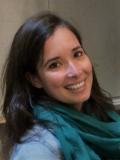 In this brown bag seminar, Eline Huygens will present her current work in progress as part of her PhD project entitled ‘Gender, relationships, and sexuality. An empirical study on the lived experiences of young Catholic women’. In particular she will talk about the entanglement of relationships and religiosity in Catholic women’s lives.Eline is a doctoral researcher and teaching assistant at Ghent University, involved in the linking course and master programme Gender and Diversity, and member of the Centre for Research on Culture and Gender. In her doctoral research, she investigates how religion shapes the experiences and practices of Roman Catholic women pertaining to relationships and sexuality.
In this brown bag seminar, Eline Huygens will present her current work in progress as part of her PhD project entitled ‘Gender, relationships, and sexuality. An empirical study on the lived experiences of young Catholic women’. In particular she will talk about the entanglement of relationships and religiosity in Catholic women’s lives.Eline is a doctoral researcher and teaching assistant at Ghent University, involved in the linking course and master programme Gender and Diversity, and member of the Centre for Research on Culture and Gender. In her doctoral research, she investigates how religion shapes the experiences and practices of Roman Catholic women pertaining to relationships and sexuality. -
Mon15Mar202112:00- 13:00Zoom
Instagrammable Femininities
Lunch seminar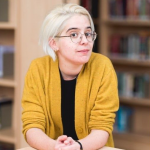 Instagrammable Femininities: exploring the gender politics of self-representations on Instagram and women’s magazines
Instagrammable Femininities: exploring the gender politics of self-representations on Instagram and women’s magazinesIn this brown bag seminar, Sofia P. Caldeira will present her research. She recently successfully defended her PhD thesis in Communication Sciences (Ghent University) with the title ‘Instagrammable Femininities: exploring the gender politics of self-representations on Instagram and women’s magazines’.
Sofia is a member of the Centre for Cinema and Media Studies (CIMS) at Ghent University, Belgium. Her research focuses primarily on social media, self-representation practices, politics of gender representation, and feminist media studies.
Facebook: https://fb.me/e/5pJq5NP9Q
-
Sun06Dec2020Universitair Ziekenhuis Gent
Event2
beschrijving
-
Thu26Nov20208:00 pmUniversitair Ziekenhuis Gent
Event1
beschrijving
-
Mon26Oct2020Thu29Oct2020different locations
Re-enchanting the world with Silvia Federici
Ghent University, Kunsthal Ghent and Kunstencentrum Vooruit join forces to host a multiple day event with feminist activist, writer and teacher Silvia Federici, renowned for her research and activism at the intersection of women’s, anti-capitalist, and anti-colonial struggles. Silvia Federici will join online while we will gather physically at Vooruit and Kunsthal Gent.
Monday 26 October: Film Screening (TBA) selected by Silvia Federici
Art Cinema OFFoff, 20:00
Introduction by Omar Jabary Salamanca (ULB)
Wednesday 28 October: Public lecture by Silvia Federici
Vooruit, 20:00
Rethinking and restructuring social reproduction in times of racist violence and global epidemic
Lecture followed by conversation with Ida Dequeecker (BOEH, Furia) and Benedikte Zitouni (UCL, Saint-Louis Bruxelles). Chaired by Kopano Maroga, Vooruit
The current global crisis has shown that vast processes of change will be needed to repair the broken infrastructures and address the social inequalities that are at the origin of the pan- demic. Silvia Federici argues that the coming together of a broad range of struggles over healthcare, agriculture and food produc- tion, environmental justice and care work, as well as the rejec- tion of all forms of racism and xenophobia are the condition not just for a return to 'normality', but for the transformation of the crisis into an opportunity for change.
Silvia Federici will be present online, discussants and audience gather at Vooruit. The event will be streamed live.
Thursday 29 October: Workshop: Re-enchanting the world with Silvia Federici
Kunsthal Gent, 17:00 - midnight
Intimate workshop with activists, artists and academics.
As our homes are transforming into permanent zoom-offices and home-schooling units, there is a politics of labour emerging from the pandemic that deepens historic inequalities of class, race and gender. Starting from two cases in Belgium (e.g. on the in/ outsourcing of cleaners and on the enclosures of the beach), we aim to collectively create a pamphlet with Silvia that will record and respond to the urgent questions of this moment of global crisis and its opportunities for a new commons.
Silvia Federici will be present online, workshop participants gather in situ at Kunsthal Gent.
Organisers
Jesse Jones, Kunsthal Gent, Ghent University (Omar Jabary Salamanca, Julie Carlier and Siggie Vertommen)

-
Thu22Oct20209:00 amonline
Online Symposium: “Gender & Diversity in Contemporary Yoga”
This one-day symposium brings together scholars investigating yoga and other body-mind-spirit practices from a critical gender and diversity perspective.
Research has shown how Yoga in the contemporary West often caters for members of the white, urban middle-class, among which a majority of women, who seek a healthy life-style, relief from a stressful professional environment and/or personal development. Critical scholarship has pointed out the compliance of this kind of healthist and individual-oriented practices with neoliberal culture and its demands for self-management and self-optimization. Yet, from an intersectional perspective, feminist and critical race scholars have denounced the restrictive and exclusivist health and beauty ideals yoga upholds with the typical yogi being young, white, slim, sexy and able-bodied.
Expanding on this research, this symposium presents empirical, qualitative studies that investigate these dynamics in contemporary Western yoga or other body-mind-spirit settings and/or explore diverse forms of practice and resistance. Indeed, phenomenological approaches have uncovered how yoga, by developing inner awareness and approaching the body as one’s sanctuary, can be a means for acting against consumerist and restrictive (female) body-objectification. Moreover, initiatives are investigated that diverge from neoliberal exclusivist yoga and other BMS practices such as activist yoga, donation-based yoga, yoga or mindfulness for specific groups (for instance, older women, disabled people, migrant or refugee communities, etc.).
The symposium deals with the European context, which, from a gender & diversity perspective, remains understudied compared to North-America. Attention is also given to religion/spirituality, an often forgotten dimension in intersectional research which is particularly useful for interrogating the liberatory potential of body-mind-spirit practices in contemporary Europe’s post-secular climate.
Please register if you wish to attend by sending an email to carine.plancke@ugent.be.
Organisation:
Dr. Carine Plancke and Prof. Dr. Chia Longman
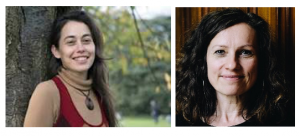


Programme (CEST)
09:00-09:10: Opening words by Prof. Dr. Chia Longman (University of Ghent)
Invited Lectures
09:15: 10:15: Asanas, aspirations and agency. attracting women to yoga — Vignettes from Post-War Germany and their impact for critical yoga studies
Lecture by Prof. Dr. Beatrix Hauser (University of Bremen)
10:20-11:20: Is yoga a middle-class girl thing? Questioning hegemonic portraits of yoga practitioners
Lecture by Prof. Dr. Maria del Mar Griera (Universidad Autónoma de Barcelona)11:25-12:25: ”I’m going to be honest and … tell you that I feel like my emotions are all over the place right now”: the work of doing aesthetic and emotional labour in contemporary yoga teaching
Lecture by Dr. Jennifer Lea (University of Exeter)
Panels
14:00-15:30: Panel 1: Activism, feminism and inclusion in/through yoga
Moderator: Prof. Dr. Ladan Rahbari (University of Amsterdam)Ella Poutiainen (University of Turku): Feminism, women's spirituality and social change
Dr. Cassandra Ellerbe (Bard College Berlin): Kemetic Yoga and healing circles as a form of resistance for BIPOC women in Germany
Prof. Dr. Esther Sanchez-Pardo (University of Madrid): Yoga for educators: Affect and accountability in a culturally diverse environment
Dr. Caroline Nizard (University of Lausanne): Representations and paradoxes of modern yoga (well-being, sport and spirituality)15:45-17:15: Panel 2: The politics and spirituality of self-care practices
Moderator: Eline Huygens (University of Ghent)Gemma Lucas (University of Exeter): The enactment of ‘the (gendered) natural’ within spiritual assemblages
Dr. Aliette Lambert (University of Exeter) The liberatory potential of Tantra yoga
Prof. Dr. Sarah De Mul (Open University Netherlands): Tango as a Matter of Care in Neoliberal Brussels
Emanuela Mangiarotti (University of Genoa): Embodying self-care: Women in yogaInvited lectures
Prof. Dr. Beatrix Hauser (University of Bremen): Attracting Women to Yoga — Vignettes from Post-War Germany and their Impact for Critical Yoga Studies
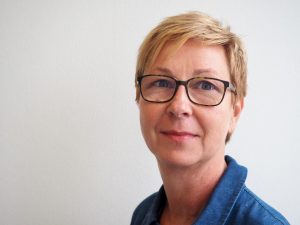 Today yoga is one of the major physical regimes practiced by women. This popularity is usually linked to recent concerns about self-identity, holistic health and spiritual growth. However, from a critical point of view it is not clear whether and how the declared power of yoga indeed is empowering, particularly in a wider social sense — for women, and other groups of yoga practitioners.
Today yoga is one of the major physical regimes practiced by women. This popularity is usually linked to recent concerns about self-identity, holistic health and spiritual growth. However, from a critical point of view it is not clear whether and how the declared power of yoga indeed is empowering, particularly in a wider social sense — for women, and other groups of yoga practitioners.Following the scholarship on the history of modern postural yoga, today’s bodily practice resulted from a transcultural multidirectional process of adopting, reframing and modifying ideas and body techniques, beginning in the late 19th century (see De Michelis, Alter, Singleton). In the course of this, a male-oriented revival of pre-modern posture (āsana) practice turned into a highly commoditized discipline, largely associated with softness and femininity. The term yoga became a floating signifier used in several interconnected discourses for a variety of ideas and practices.
In this key note I focus on a period that is, I argue, crucial for understanding present-day narratives on yoga and its potentially liberating effects for women: the 1950s. Focussing on early yoga manuals in German language that address female practitioners in particular, I explore how yoga was introduced to women: Why should women engage with yoga? What did it offer in this post-war environment? What did yoga entail? What were the rationales, ethics and promises involved? What did yoga possibly replace?
Based on the analysis of primary sources and ethnohistorical contextualization I will identify three intermingled discursive strands:
- an emphasis on female grace and beauty, shared with (free-standing, rhythmic) gymnastics;
- New Thought arguments, re-connecting to earlier discourses on body culture (Körperkultur) and Couéism;
- a dismissal of the earlier (German) occultist view on hatha yoga and its reframing as nondenominational system of physical exercises.
I show that these discursive strands opened up an ambigious cultural space of selftransformation, and encountered women (resp. Trümmerfrauen) facing both the limitations and renewed restrictions of the post-war era. In conclusion I shall offer some thoughts on the ways in that this discursive space of self-transformation has changed in the present, and what we can learn for understanding and exploring recent attempts to spread yoga.
Prof. dr. Maria del Mar Griera (Universidad Autónoma de Barcelona): Is yoga a middle-class girl thing? Questioning hegemonic portraits of yoga practitioners
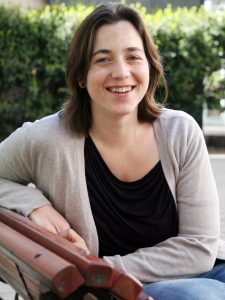
Most of the empirical research on yoga has focused on white middle-class, middle-aged women living in Europe and the US. In most of these accounts, the practice of yoga has been portrayed as embedded in a wellness regime promoting a soft spirituality and a healthy life-style aimed at permanent self-optimization. Yoga, thus, has been read as a neoliberal technique used in an instrumental fashion. However, this portrait only tells one side of the story. Contemporary yoga scenarios are far more complex. Drawing on an intensive fieldwork among kundalini yoga students in two male prison in the outskirts of Barcelona, this presentation has a two-fold aim: first, to explore the ways in which yoga find its place in an environment dominated by working-class men (prisons) and contribute to transforming hegemonic conceptions of masculinity among inmates. Second, to examine the role of the volunteers that teach yoga in penitentiary institutions, and the practice of “karma yoga” as promoting a politics of personal and social emancipation. The presentation will end up calling for a more nuanced account on yoga practices that allow for a better understanding of the articulations between the practice of yoga and aspirations for social and personal transformation.
Dr. Jennifer Lea (University of Exeter): ”I’m going to be honest and … tell you that I feel like my emotions are all over the place right now”: The work of doing aesthetic and emotional labour in contemporary yoga teaching.
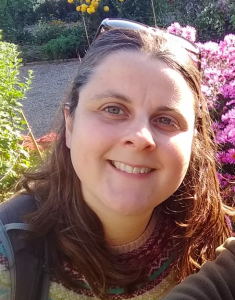
This presentation draws on my recent research which has approached yoga through the lens of work. Through in-depth interviews carried out with yoga teachers in the South West of England, the research looks at the kinds of work that yoga teachers do, as well as the impacts of this work on them as workers. Here I will focus on the aesthetic and emotional labour carried out by teachers, both in and out of the yoga studio. Firstly, I will outline what these traditionally feminized forms of labour (see Hothschild 2012, Mears 2014) look like in the field of yoga teaching. To follow, I will look at the various impacts of doing this kind of work – with particular focus on how the teachers variously experience managing the look and feel of their bodies, and how they understand yoga itself to mediate the (broadly negatively conceptualized) effects of doing this aesthetic and emotional labour. To conclude, I will offer some thoughts about the effects of the COVID-19 pandemic on the work that yoga teachers are doing.
Panel presentations
Panel 1: Activism, feminism and inclusion in/through yoga
Ella Poutiainen (University of Turku): Feminism, women's spirituality and social change
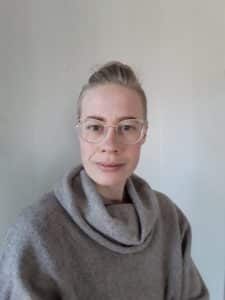 My research deals with different practices of holistic spirituality that are aimed at women and that reflect – implicitly or explicitly – feminist discourses and practices. Feminist undertones are increasing within the field of women's spirituality, that often stress themes of womens empowerment and societal change. However, the intersections and tensions between contemporary feminisms and the women-dominated practices of holistic spirituality are puzzling. On one side, inspite of seemingly feminist agendas within practices of women's spirituality, an explicit identification with feminism is often vague or lacking. Sometimes there's even a suspicious or indifferent attitude towards the F word. On the other side, Western feminism has been accused of secular biases and an indifference toward religion. Indeed, New Age has been criticised by feminists for being essentialist and irrational, and thus undermining the advantages made by feminism. Yet studies have shown that along the secularisation of Western societies women, compared to men, are more drawn to religiosity in general and practices of holistic spirituality in particular. The extent to which 21st century Western women turn to spirituality for empowerment and societal change makes it a critical issue for feminists. Hence, I'm interested in the multilple ways that feminism and practices of women's spirituality stick to and repel each other in our contemporary postsecular condition. I do ethnographic research within the fields of women's yoga, ayurveda, neoshamanism and other New Age inspired spiritual practices both in Finnish and Euro- American contexts. Through the lens of feminist new materialism and affect theory I explore how women's spiritual practices stretch the understanding of political agency and can serve as a site for political subjectivity.
My research deals with different practices of holistic spirituality that are aimed at women and that reflect – implicitly or explicitly – feminist discourses and practices. Feminist undertones are increasing within the field of women's spirituality, that often stress themes of womens empowerment and societal change. However, the intersections and tensions between contemporary feminisms and the women-dominated practices of holistic spirituality are puzzling. On one side, inspite of seemingly feminist agendas within practices of women's spirituality, an explicit identification with feminism is often vague or lacking. Sometimes there's even a suspicious or indifferent attitude towards the F word. On the other side, Western feminism has been accused of secular biases and an indifference toward religion. Indeed, New Age has been criticised by feminists for being essentialist and irrational, and thus undermining the advantages made by feminism. Yet studies have shown that along the secularisation of Western societies women, compared to men, are more drawn to religiosity in general and practices of holistic spirituality in particular. The extent to which 21st century Western women turn to spirituality for empowerment and societal change makes it a critical issue for feminists. Hence, I'm interested in the multilple ways that feminism and practices of women's spirituality stick to and repel each other in our contemporary postsecular condition. I do ethnographic research within the fields of women's yoga, ayurveda, neoshamanism and other New Age inspired spiritual practices both in Finnish and Euro- American contexts. Through the lens of feminist new materialism and affect theory I explore how women's spiritual practices stretch the understanding of political agency and can serve as a site for political subjectivity.Dr. Cassandra Ellerbe (Bard College Berlin): Kemetic Yoga and Healing Circles as a Form of Resistance for BIPOC1 Women in Germany
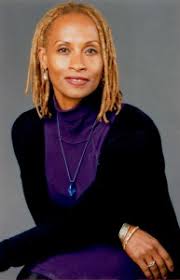 Many BIPOC womxn2 living in Germany find themselves entangled daily within the intersections of racism, sexism, and other forms of discrimination. The manifestation of these intersections often creates stress levels, which over time, force some members of this group into a constant psychological and physical “fight or flight” mode and “dis-ease”. In recent years many members of this group living in the city of Berlin have come to look to the words of the Black lesbian warrior poet Audre Lorde “Caring for myself is not self-indulgent, it is self-preservation, and is a political act of warfare“3 not only as a source of inspiration, but also as a form of resistance. My observation of BIPOC groups on Instagram and Facebook indicate that the practice of Yoga along with an array of other self-care practices are now becoming very closely linked with activism and “out – loud” resistance. However, the dominance of whites within the world of Hatha Yoga in Germany, has prompted many BIPOC womxn to discover the practice of Kemetic Yoga4 and participate in BIPOC womxn only healing circles, whilst creating safe and empowering spaces for themselves. With the assistance of multi-sited ethnography (Marcus 1995) and intersectional theory (Crenshaw 1989), I seek to examine how some individuals of this group, especially in the city of Berlin are utilising Kemetic Yoga and BIPOC womxn exclusive healing circles to not only practice self-care, but also as a “political act of warfare”.
Many BIPOC womxn2 living in Germany find themselves entangled daily within the intersections of racism, sexism, and other forms of discrimination. The manifestation of these intersections often creates stress levels, which over time, force some members of this group into a constant psychological and physical “fight or flight” mode and “dis-ease”. In recent years many members of this group living in the city of Berlin have come to look to the words of the Black lesbian warrior poet Audre Lorde “Caring for myself is not self-indulgent, it is self-preservation, and is a political act of warfare“3 not only as a source of inspiration, but also as a form of resistance. My observation of BIPOC groups on Instagram and Facebook indicate that the practice of Yoga along with an array of other self-care practices are now becoming very closely linked with activism and “out – loud” resistance. However, the dominance of whites within the world of Hatha Yoga in Germany, has prompted many BIPOC womxn to discover the practice of Kemetic Yoga4 and participate in BIPOC womxn only healing circles, whilst creating safe and empowering spaces for themselves. With the assistance of multi-sited ethnography (Marcus 1995) and intersectional theory (Crenshaw 1989), I seek to examine how some individuals of this group, especially in the city of Berlin are utilising Kemetic Yoga and BIPOC womxn exclusive healing circles to not only practice self-care, but also as a “political act of warfare”.Notes:
1 BIPOC is the acronym for Black, indigenous People of Colour.
2 I utilize the spelling of the term “womxn” to include transgender women identified persons.
3 Audre Lorde (1988).
4 Kemetic Yoga is a form of Yoga that originated in ancient Egypt. Kemet is the ancient Egyptian name of Egypt.
Prof. Dr. Esther Sanchez-Pardo (University of Madrid): Yoga for Educators: Affect and Accountability in a Culturally Diverse Environment
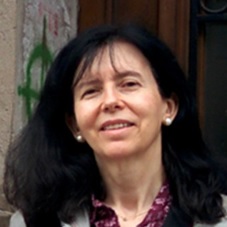 With a long history of practice in the West and fitting perfectly within the routine habits of an urban, middle-class society seeking wellness, comfort and a holistic discipline to assuage the uncertainties and stress disorders assailing us, yoga has become a priority for a growing number of people. Even if one does not practice, it is hard not to notice the many references to yoga that appear daily in popular culture. This increasing familiarity with yoga and its benefits in so many domains, has led more and more institutions and educators to consider the advantages of its inclusion within the regular teachers’ training curricula at present.
With a long history of practice in the West and fitting perfectly within the routine habits of an urban, middle-class society seeking wellness, comfort and a holistic discipline to assuage the uncertainties and stress disorders assailing us, yoga has become a priority for a growing number of people. Even if one does not practice, it is hard not to notice the many references to yoga that appear daily in popular culture. This increasing familiarity with yoga and its benefits in so many domains, has led more and more institutions and educators to consider the advantages of its inclusion within the regular teachers’ training curricula at present.This paper aims at showing to what extent, within the frame of teachers’ training for the culturally diverse classroom -where different identities, nationalities, ethnicities and religions co-exist-, yoga is a much needed source of knowledge and practice in mobilizing affect and accountability among students to create a safe and inclusive atmosphere based on equality and respectful of differences. This paper is part on an ongoing project within my teaching for the last three years within the MA programs in Teacher Training, and Gender Studies at U. Complutense. The inclusion of specific modules on yoga with an emphasis on intersectional feminism has brought about a huge interest in questions of vulnerability, social exclusion, intolerance and an active critique on the regimes of invisibility (B. Latour 2010) operating in our society. An intersectionally-inflected yoga practice has brought about a very fruitful, research oriented and inquisitive class dynamics.
Issues such as understanding and living fully the mind-body symbiosis, strengthening our inner core, making progress into self-knowledge, and delving into meditation for peaceful living, count among the prominent successful outcomes of yoga training. It is my contention that other crucial issues such as accountability have not been sufficiently addressed. Drawing from Judith Butler’s reflection on accountability (2005) within the context of ethical life, and the moral self’s complicity with violence, and a growing concern in yoga-oriented education for matters moving from the individual to the social world (Berila et al eds. 2016, Spinazzola 2011), this paper aims at discussing how by raising awareness on differences, and mobilizing affect in the classroom, one can work toward an inclusive, equity pedagogy with recourse to yoga and intersectionality.
Dr. Caroline Nizard (Lausanne University): Representations and paradoxes of modern yoga (well-being, sport and spirituality)
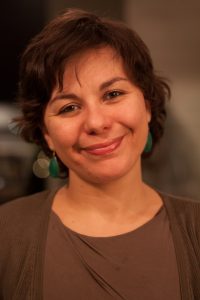 Thanks to sixty semi-directive interviews conducted with yoga practitioners and/or teachers and participant observations in French Switzerland, France and India, between 2013 and 2018, this proposal wishes, first, to question the social characteristics of modern yoga practitioners, and second, to compare some visible aspects of yoga, particularly around representations linked to well-being, spirituality, aesthetics, and the invisible aspects of reality experienced, and observed in the field.
Thanks to sixty semi-directive interviews conducted with yoga practitioners and/or teachers and participant observations in French Switzerland, France and India, between 2013 and 2018, this proposal wishes, first, to question the social characteristics of modern yoga practitioners, and second, to compare some visible aspects of yoga, particularly around representations linked to well-being, spirituality, aesthetics, and the invisible aspects of reality experienced, and observed in the field.Like Hoyez (2012), Newcombe (2017), my research (2019) has shown specific social characteristics of yoga practitioners. It is a gendered activity, mainly done by female, with an average age around 40 years old and primarily belonging to higher social categories. In India, the percentage of men was more important on my fields. However, in recent years, in France and Switzerland, yoga has become increasingly popular and attracts people from more diverse social backgrounds, men and younger people. The hypothesis explaining this change could be (a) a growing sportivization, (b) a stronger craze for wellness practices, (c) the use of new technologies (internet, applications).
Secondly, I would like to examine three paradoxes that run through the representations, discourses and practices of "modern yoga" (De Michelis, 2003):
- The question of aesthetics versus the “respect of the body of each person” defended as a value of yoga (i.e. “curvy yoga”
- Non-competition versus a growing sportivization in sports halls in France or Switzerland or during yoga championships in India.
- The will to secularize the practices and at the same time to claim a "spiritual quest". Yoga practitioners are often affiliated to new religious movements or New Age practices, yet my fields do not fit with these definitions.
Most of the teachers and practitioners I met criticized the new modalities of mainstream yoga (commercialization, performance, aesthetics, well-being). However, the observation of practices shows that these same actors appropriate these representations.
Panel 2: The politics and spirituality of self-care practices
Prof. Dr. Sarah De Mul (Open University Netherlands): Tango as a Matter of Care in Neoliberal Brussels
 An oft-cited symbol of Argentine national identity, tango’s allure endures for practitioners worldwide. Drawing on archival and ethnographic research, Savigliano (1995) notably demonstrated tango’s historical and contemporary imbrication in struggles around ethnicity, race, labour, and sex. Recent studies have addressed the eroticized, sexualized and exoticist practice and image of tango dancing and also explored how the heteronormativity, notions of ‘exoticism’ and hierarchies of sexuality and gender embodied in tango dancing are increasingly challenged (e.g. Davis 2015).
An oft-cited symbol of Argentine national identity, tango’s allure endures for practitioners worldwide. Drawing on archival and ethnographic research, Savigliano (1995) notably demonstrated tango’s historical and contemporary imbrication in struggles around ethnicity, race, labour, and sex. Recent studies have addressed the eroticized, sexualized and exoticist practice and image of tango dancing and also explored how the heteronormativity, notions of ‘exoticism’ and hierarchies of sexuality and gender embodied in tango dancing are increasingly challenged (e.g. Davis 2015).In line with these recent strands of feminist and postcolonial scholarship of tango, I will discuss contemporary engagements with tango dancing in the Western European neoliberal metropolis of Brussels by situating these within debates regarding the complicities and resistance of mind-spirit practices within global neoliberal culture. More specifically, I will propose to view tango as a matter of “care”, which is not understood as "a feel-good attitude," but rather—referring to the work of Maria Puig de la Bellacasa—through dimensions of affect/affection, labour/work, and ethics/politics. I will analyse representations of tango as a matter of care in three different texts: a collection of tango photography, Claire Delville’s short story ‘Dernier tango à Bruxelles’, and testimonials of tango dancers. In so doing I hope to offer new insights into the transnational negotiation of body mind practices such as tango dancing, its critiques and its role in the shaping of (post)modern cosmopolitan lifestyles. In particular, my aim is to expose how tango dancers in brussels use an aresenal of corporeal tactics to manage life and pain under neoliberalism though selfcare and care for others.
Dr. Aliette Lambert (University of Exeter): The liberatory potential of Tantra yoga
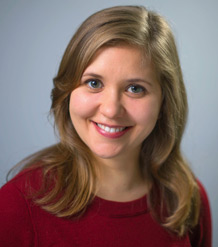 This exploratory ethnography of a yoga centre in southwest England grounded in a Tantrik tradition aims to explore potential correctives to dominant neoliberal capitalist subjectivities, asking: how can liberatory Tantrik practices become embodied and embedded into western ways of being? Many studies have explored the neoliberal co-optation of an aerobic type of postural yoga pervasive in the west – catering to individualist ‘self-projects’ of predominately white/western/upper or middle class and able-bodied women. But few examine practices of resistance to a neoliberal-capitalist regime of truth that emerge organically from ‘Yoga’ as it is arguably meant to be experienced: as a spiritual practice where the individual, drawing on techniques including but not limited to asana (postures), works towards connecting to all-pervasive Conscious awareness (cit-sakti). This is the focus of teaching at the Yoga centre, whose female director teaches processes of revitalising and re-establishing the connection to the self, others, phenomenological world and spirit, from which we are estranged in a neoliberal-capitalist system. Where non-dual Śaiva Tantricism entreats individuals to identify with absolute Consciousness, neoliberal thought asks individuals to identify largely with their possessions, positions, and other objects in the material world, creating ‘contraction’, or in Marxist terms ‘alienation’, from the True self (consciousness from which we all manifest). The three ‘impurities’ (malas) in the Tantrik perspective read like the three tenets of neoliberalism: the impurity of individuality (ānava-mala); the impurity of differentiation (māyīya-mala); and the impurity of action (karma-mala). Significantly, whereas neoliberal-capitalism propagates patriarchal tradition and avers ‘masculine’ traits, Tantrik tradition is grounded in a divine dance of masculine and feminine powers, with arguably a greater focus on the latter. Reflecting on initial findings, this project demonstrates how liberatory practices emanating from Tantra can create a more diverse and accepting form of ‘western’ yoga that realises a liberatory potential and works towards a more just society.
This exploratory ethnography of a yoga centre in southwest England grounded in a Tantrik tradition aims to explore potential correctives to dominant neoliberal capitalist subjectivities, asking: how can liberatory Tantrik practices become embodied and embedded into western ways of being? Many studies have explored the neoliberal co-optation of an aerobic type of postural yoga pervasive in the west – catering to individualist ‘self-projects’ of predominately white/western/upper or middle class and able-bodied women. But few examine practices of resistance to a neoliberal-capitalist regime of truth that emerge organically from ‘Yoga’ as it is arguably meant to be experienced: as a spiritual practice where the individual, drawing on techniques including but not limited to asana (postures), works towards connecting to all-pervasive Conscious awareness (cit-sakti). This is the focus of teaching at the Yoga centre, whose female director teaches processes of revitalising and re-establishing the connection to the self, others, phenomenological world and spirit, from which we are estranged in a neoliberal-capitalist system. Where non-dual Śaiva Tantricism entreats individuals to identify with absolute Consciousness, neoliberal thought asks individuals to identify largely with their possessions, positions, and other objects in the material world, creating ‘contraction’, or in Marxist terms ‘alienation’, from the True self (consciousness from which we all manifest). The three ‘impurities’ (malas) in the Tantrik perspective read like the three tenets of neoliberalism: the impurity of individuality (ānava-mala); the impurity of differentiation (māyīya-mala); and the impurity of action (karma-mala). Significantly, whereas neoliberal-capitalism propagates patriarchal tradition and avers ‘masculine’ traits, Tantrik tradition is grounded in a divine dance of masculine and feminine powers, with arguably a greater focus on the latter. Reflecting on initial findings, this project demonstrates how liberatory practices emanating from Tantra can create a more diverse and accepting form of ‘western’ yoga that realises a liberatory potential and works towards a more just society.Gemma Lucas (University of Exeter): The enactment of ‘the (gendered) natural’ within spiritual assemblages

This paper draws on ethnographic fieldwork at a yoga studio in the North of England. I focus on my participation within a ‘Red Tent Circle’ held within this studio. ‘Red Tent Circles’ are New Age spiritual practices (Longman, 2018) which, I suggest, invite a conscious entangling of self, nature and ‘divine femininity’ in a particularly revealing example of what Gregory (2016) calls a ‘spiritual assemblage’. In this, the borders of human, nonhuman and intangible life become porous in the participant’s quest to learn a new “way or mode of relating to the self” (Ibid.: 239). I will extend Gregory’s concept to consider which forms of life beyond the human are privileged within New Age spiritual assemblages, arguing they enact a construction of the ‘natural’ that intersects with gender. I consider the potential for this enactment of ‘the (gendered) natural’ to both challenge dualistic conceptions that historically oppressed women and other marginalised groups and to foster regressive gendered idea(l)s which affiliate ‘Real’ womanhood with ‘nature’. I then consider how this ‘(gendered) natural’ similarly emerged in other ways within the materials, ideas, practices, and discourses of the yoga studio and the impact this had on my participants’ experience of their gendered selves.
Dr. Emanuela Mangiarotti (University of Genoa): Embodying self-care: Women in yoga
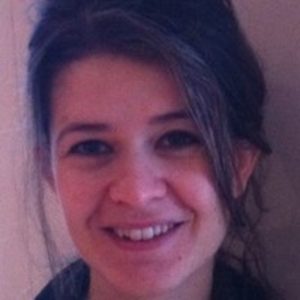 The practice of yoga has grown worldwide and has been increasingly associated with individ-ual and communal empowerment, self-care and social change. Yet, a growing body of research in-tersecting feminist and critical yoga studies shows how the Western yoga scene is entangled with relations of privilege and marginality across gender, race, sexuality, class and body-size. Issues of accessibility, cultural appropriation, social control, and (re)marginalisation of certain groups and communities are beginning to haunt the yoga community, especially in contexts that claim a yogic ethics of self and collective care. Based on my fieldwork in Italy, this contribution discusses how, in the realm of neoliberal precarity, the yoga industry offers practitioners a life regime of, experienced by, and inscribed in the body that is meant to transcend physiological boundaries and expand indi-vidual and collective awareness. Thus, yoga configures a politics of the body that moulds a new ex-istential framework for the socially embodied self. In this context, women and specific notions of womanhood are key to a promise of wellness, healing and self-realisation that materialises white, cisgender, moneyed, slender female practitioners as embodiments of the proper way to self-care and ethical living. Relying on a feminist notion of self-care, the contribution is particularly concerned with how women – as the majority of practitioners – get caught up in, contribute to mould or active-ly challenge relations of privilege and marginality, as the yoga industry provides a repertoire of practices that adhere to and reproduce an oppressive feminine norm.
The practice of yoga has grown worldwide and has been increasingly associated with individ-ual and communal empowerment, self-care and social change. Yet, a growing body of research in-tersecting feminist and critical yoga studies shows how the Western yoga scene is entangled with relations of privilege and marginality across gender, race, sexuality, class and body-size. Issues of accessibility, cultural appropriation, social control, and (re)marginalisation of certain groups and communities are beginning to haunt the yoga community, especially in contexts that claim a yogic ethics of self and collective care. Based on my fieldwork in Italy, this contribution discusses how, in the realm of neoliberal precarity, the yoga industry offers practitioners a life regime of, experienced by, and inscribed in the body that is meant to transcend physiological boundaries and expand indi-vidual and collective awareness. Thus, yoga configures a politics of the body that moulds a new ex-istential framework for the socially embodied self. In this context, women and specific notions of womanhood are key to a promise of wellness, healing and self-realisation that materialises white, cisgender, moneyed, slender female practitioners as embodiments of the proper way to self-care and ethical living. Relying on a feminist notion of self-care, the contribution is particularly concerned with how women – as the majority of practitioners – get caught up in, contribute to mould or active-ly challenge relations of privilege and marginality, as the yoga industry provides a repertoire of practices that adhere to and reproduce an oppressive feminine norm. -
Wed16Sep2020Fri18Sep202010:00 amBlandijnberg 2, 9000 Gent, room 110.079 (first floor)
Ethnographic Research Seminar 2020
Research Ethics in Ethnography
Over the last decade there has been an increasing ethical regulation of social and humanities research. While this tendency has been applauded, the bureaucratisation of research ethics has been subject to criticism, including for its propensity to stifle participation-based methodologies and for its inability to take into account the complexities that arise in ethnographic research. This course aims to explore the specific ethical issues that arise in the conduct of ethnographic research, how to overcome them, and how to develop a more reflexive and relational ethics approach.
Topic of the course
Ethnographic research is often thought to be in tension with institutional research ethics protocols, which have often been designed from a model of science as separate from social activity and politics. The complex field relationships that ethnographic participant observation or creative participatory methods produce and the impossibility of anticipating all ethical issues that will arise when using interpretive ethnographic methodologies, make the writing of ethical self-assessment reports particularly challenging for ethnographers. This three-days intensive course aims to explore this tensed relationship and help junior researchers overcome the difficulties in designing their research projects in a manner that meets institutional ethical standards, yet that also takes into account ethical issues that may be overlooked by ethical boards. The course aims to increase insight in the complexity of ethical issues that may arise in ethnographic research with regard to recruitment, consent, confidentiality and potential adverse effects of research or misuse of research results.
Objectives of the seminar
Through lectures and practical workshops, the research seminar aims to stimulate reflection on (1) how to overcome the tension between the requirements of institutional ethical boards and the specificities of ethnographic research, and (2) how to design a research ethics that moves beyond the shortcomings of institutional ethical protocols.
After completion of the course, participants:
- will be better informed about ethical requirements and data protection obligations and how they affect ethnographic research practice.
- will be able to more adequately identify ethical issues in all phases of doing ethnographic research.
- will be able to more critically reflect on the ethical issues that arise in ethnographic research, in particular in relation to unequal and shifting power relations in the field and in relation to the effects of research.
- will be stimulated to develop a strong ethical framework to guide research and practice that takes into account relational processes and power dynamics.
- will be stimulated to adopt a reflexive engagement with issues of recruitment, (continued) informed consent, privacy protection, data management, categorization, potential adverse effects of research or misuse of research results.
- will have improved their skills in writing about the specific ethical issues in ethical self-assessment reports or in the ethics section of their dissertation (or papers on the topic).
Info and registration
This research seminar is disciplinary in focus and offered to PhD students of all universities, yet preference will be given to students from Ghent University, Leuven University and VUB. All students can receive a ‘proof of successful participation’, which can be recognized by their home PhD programme.
Registration by sending an email to: Nika.Looman@UGent.be before August 15th 2020. IPlease include your name, affiliation, the doctoral school you are a member of, and a brief description of your research and of your motivation for participating in this course. The organising committee will select students based on who they think would benefit most from participating in the research seminar.
The maximum number of participants is 20 students.
Venue: Blandijnberg 2, 9000 Gent, room 110.079 (first floor)
If the research seminar cannot take place due to the corona regulations, it will be postponed to a later date. Registered participants will be notified if this would occur.
Online participation in lectures
The lectures by Rachel Spronk, Jacinthe Mazzocchetti and Rahil Roodsaz in the morning part of the ERS programme will be accessible through Zoom for everyone that is interested. If you would like to join, please send an e-mail to Sara De Vuyst (S.DeVuyst@ugent.be) and you will receive a link and the password to join.
Programme
DAY 1 - 16 SEPTEMBER 2020
10:00-12:00: Lecture 1: Ambitions and ambiguities of ethical ethnography (location: room 110.079)
Prof. Dr. Rachel Spronk (University of Amsterdam, The Netherlands)
Chair: Prof. Dr. Steven Van Wolputte (SMEC, Social and Societal Ethics Committee, Leuven University)12:00-13:00: Lunch break
13:00-14:30: Workshop 1: GDPR and ethnography (location: room 110.079)
How to bring your research in sync with the GDPR requirements (such as data minimization, explicit consent and data governance)?
Workshop teachers: Dr. Marjan Moris (Expeditions vzw) & Raf Jespers (Just Lawyers)14:30-15:00: Break
15:00-17:30: Closed master class & workshop 2 (location: room 110.079)
A: Closed master class with Prof. Dr. Rachel Spronk (only for the team members of the ERC project LiLI)
B: Workshop 2: Film screening & discussion: ‘Fighting for the right to housing in Bucharest’ by Michele Lancione. – ethical issues and dilemmas in activist urban ethnographic research.
Workshop teacher: Prof. Dr. Karel Arnaut (Leuven University)CANCELLED DAY 2 - 17 SEPTEMBER 2020
10:00-12:00: Lecture 2: The ethics of ethnographic fieldwork in the context of war against migrants (location: room 110.079)
Prof. Dr. Jacinthe Mazzocchetti (UCLouvain):
Chair: Prof. Dr. Gily Coene (VUB)12:00-13:00: Lunch break
13:00-14:30: Workshop 3: Ethnography and the unexpected (location: room 110.079)
How to handle unexpected results, and newly arising questions in ethnographic research? How to ethically and effectively manage and cope with possible unintended impact of research on the participants and/or the researcher? What to do when during the research incidental sensitive findings come up such as (sexual) abuse, domestic violence, illegal activities, etc.?
Workshop teachers: Prof. Dr. Ine Lietaert (Ghent University/UNU-CRIS) and Prof. Dr. Katrien De Graeve (Ghent University)14:30-15:00: Break
15:00-17:30: Master class 1: Doing research in times of growing extreme-right anti-gender and anti-migration forces in society (location: room 110.079)
by Prof. Dr. Jacinthe Mazzocchetti
How to intervene in the debates? How to prevent potential misuse of research results by extreme-right groups? How to deal with attacks by internet trolls or physical threats and intimidation?DAY 3 - 18 SEPTEMBER 2020
10:00-12:00: Lecture 3: An ethnographic attempt to address and de-essentialise difference and polyamory in the Netherlands (location: room 110.079)
Dr. Rahil Roodsaz (University of Amsterdam)
Chair: Prof. Dr. Aymon Kreil (Ghent University)12:00-13:00: Lunch break
13:00-14:00: Workshop 4: Ethnography and data (location: room 110.079)
What is data in ethnographic fieldwork? How to deal with ethnographic data in an ethical manner? And what does this mean for data management?
Workshop teacher: Dr. Marjan Moris (Expeditions vzw)14:00-14:30: Break
14:30-16:30: Master class 2: (Un)doing difference and universality (location: room 110.079)
by Dr. Rahil Roodsaz
How to avoid reproducing difference by tracing practices of difference-making? How to engage with values of transparency and honesty as a researcher when doing fieldwork?Homework
- The students prepare reading assignments for all lectures (two to four articles or book chapter per lecture, chosen by the lecturers);
- They prepare questions for the lectures’ Q&A rounds;
- Dependent on their specific needs, and using insights gained from the readings, students write a reflection on their ethical self-assessment report or a paper about research ethics that can serve as the foundation for a thesis chapter or paper. This text will serve as the basis for discussion in the master classes and can also be used in the workshops if applicable. The text should be submitted one week before the start of the seminar and will be distributed to all lecturers and workshop teachers.
Evaluation criteria:
- 100% attendance
- Active participation during lectures, masterclasses and workshops
- Assignment
Organizing committee
Coordination
Prof. Dr. Katrien De Graeve, CRCG, faculty of Arts and Philosophy, Ghent University
Organizing & scientific committee
CRCG, UGent:
Dr. Valerie De Craene
Dr. Sara De Vuyst
Dra. Nika Looman
Dra. Kyla Robinson
Dr. Carine PlanckeCESSMIR, UGent:
Prof. dr. Ine Lietaert
MENARG, UGent:
Dr. Sigrid Vertommen
IMMRC, KUL
Prof. Dr. Karel Arnaut
Dra. Elsemieke Van Osch
Dra.Christina VerbruggenRHEA, VUB:
Dr. Susan Dierickx
-
Mon16Mar202012:00 pmCampus Boekentoren, Building Blandijn, Room 120.025, Blandijnberg 2, 9000 Gent (second floor)
LGBTQ+ rights in Cuba and Latin America by Teresa Fernández González (University of Sassari) - Canceled
Lunch seminarTeresa de Jesús Fernández was teacher at the Faculties of Arts and Philosophy and Foreign Languages and Literatures, of the University of Sassari, Sardinia. She is now a leading activist of the LGTBI community, and currently works as an external collaborator of Cenesex, as National Coordinator of the network of lesbian and bisexual women of this institution. In 1986 she won the David Essay Prize, UNEAC. In 2019 she translated the book “Femminielli. Corpo, Genere, Cultura” from Eugenio Zito and Paolo Valerio, as well as a book of interviews with lesbian and bisexual women from different regions of Cuba (coordinated by Sara Más and Teresa de Jesús Fernández), which is the first book to be published in Cuba on the subject.
Link: http://directoriogenero.redsemlac-cuba.net/teresa-de-jesus-fernandez-gonzalezla-habana-1960/
-
Mon02Mar202012:00 pmCampus Boekentoren, Building Blandijn, Meeting room Camelot (130.007), Blandijnberg 2, 9000 Gent (third floor)
Of ingénieurs and logiques: Gender, mobility and knowledge in Kinshasa’s emerging tech scene by Katrien Pype (KU Leuven)
Lunch seminarKatrien Pype is an anthropologist who has been working on Kinshasa’s media and technology cultures since 2003. She has published in journals such as Ethnos: Journal of Anthropology; Journal of the Royal Anthropological Society; Visual Anthropology; and Media, Culture & Society. Her monograph, The Making of the Pentecostal Melodrama: Religion, Media, and Gender in Kinshasa, was published in 2012; she also co-edited a volume on Ageing in Sub-Saharan Africa: Spaces and Practices of Care (Bristol University Press). Katrien also co-initiated the CongoResearchNetwork. She is associate professor in anthropology at the KU Leuven.
-
Mon03Feb202012:00 pmCampus Boekentoren, Building Blandijn, Meeting room Camelot (130.007), Blandijnberg 2, 9000 Gent (third floor)
“Global Fertility Chains”: A feminist political economy pf transnational surrogacy between Isreal/Palestine and Georgia by Sigrid Vertommen (UGent)
Lunch seminarSigrid Vertommen is a FWO postdoctoral researcher at the Department of Conflict and Development Studies of Ghent University and an affiliated member of the Centre for Research on Culture and Gender. She was a Marie Curie Fellow at the Department of Global Health and Social Medicine at King’s College London (2017-2019), and a research associate at the Sociology of Reproduction Research Group (ReproSoc) at the University of Cambridge (2019).
-
Mon16Dec201912:00 pm
Whores, harems, and holy men. Modern views on ancient women by Katrien De Graef (Ghent University)
Lunch seminarKatrien De Graef, PhD (2004) in Oriental Languages and Cultures, is associate professor of Assyriology and History of the Ancient Near East at Ghent University. She has published extensively on 2ndmillennium BC socio-economic history of Mesopotamia (modern Iraq and Iran). Her current research focusses on the role of women in Old Babylonian economy, religion and society. She is a member of the Gender, Methodology, and the Ancient Near East (GeMANE) Study group, a scientific platform for the international community of Ancient Near Eastern scholars working on gender related themes.
-
Mon04Nov201912:00 pm
Goddess games: Gender and nature in new age spirituality by Susannah Crockford (Ghent University)
Lunch seminarSusannah Crockford is a post-doctoral researcher at Ghent University in Belgium. Her research interests focus on spirituality, millenarianism, and discourses of nature and climate change. She earned her PhD in anthropology in July 2017 from the London School of Economics, and previously completed an MA in religious studies at the University of Amsterdam and an undergraduate degree in anthropology at the University of Cambridge.
-
Mon17Jun201912:00 pm
‘Affronts to the healthy eye.’ On negotiating how people with disabilities should be regarded by Anaïs Van Ertvelde (Leiden University)
Lunch seminarAnaïs Van Ertvelde holds an Ma in history (UGent) and an Ma in gender studies (UUtrecht). Her research interests lie where bodies and social movements intersect. She is currently a PhD student at Leiden University’s Institute of History where she looks into how during the 1970s and 1980s disability became a concern for governments and social movements alike and how the concept can be understood in a bipolar world. Her research is part of the broader project Rethinking Disability. The Global Impact of the International Year of Disabled People in Historical Perspective (http://rethinkingdisability.net/).
-
Fri03May201912:00 pm
“Making family” in a relational world: Cosmopraxis among Aymara families in Bolivia and Chile by Koen De Munter (Alberto Hurtado University)
Lunch seminarKoen de Munter (1960) studied Roman Philology (Ma) and Comparative Science of Cultures (Ma, PhD) at UGent. As an anthropologist he has been working since the nineties in the Andean region, mostly in the Bolivian Altiplano, with Aymara families who commute between the indigenous city of El Alto and their home communities. Academically he has been employed in different universities in Chile, since 2012 he holds an appointment at the Department of Anthropology at Universidad Alberto Hurtado (Santiago de Chile). From the study of intercultural and postcolonial dynamics in the Andean region he has evolved in recent years towards a much more ‘biosocial’ (socialecological) perspective, focusing the theoretical reflection on the relevance of Tim Ingold’s recent work about an anthropology of life an about an “education by attention”. Koen de Munter has been conducting longstanding research projects, amongst other things about “Vivir bien” praxis, politics and ideologies (2015-2019). He is currently the principal investigator of a project about “Aymara cosmpraxis in a relational world: “making family” with the living, the dead and the wak’as” (Chilean government funded Fondecyt Regular 1190279, 2019-2022).
-
Mon29Apr201912:00 pm
Hacking gender in journalism by Sara De Vuyst (Ghent University)
Lunch seminarDr. Sara De Vuyst is a postdoctoralresearcher at the Department of Communication Studies at Ghent University. Her research interests are feminist media studies, and more specifically, gender issues andtechnological innovation journalism. She is currently working on a postdoc that explores online abuse of journalists from an intersectional perspective. Sara De Vuyst is vice-chair of the ECREA Gender and Communication section.
-
Mon18Mar201912:00 pm
Swapping and stealing: Marriage, play and polyamory in Northwest Namibia by Steven Van Wolputte (KULeuven)
Lunch seminarSteven Van Wolputte is professor of Social and Cultural Anthropology at the Institute for Anthropological Research in Africa (IARA), KU Leuven. He has published in the fields of material and popular culture, political anthropology and of the anthropology of the body. Besides the impact of rapid urbanization on intimacy and close relationships, his current research interests include the anthropology of human security in Africa and a research project on how makerspaces imagine and make the African city of the future. For more information: see https://www.kuleuven.be/wieiswie/en/person/00017725
-
Tue08Jan201912:00 pm
Bodily care, clothes and shoes from India to China by Ann Heirman (Ghent University)
Lunch seminarAnn Heirman, Ph.D. (1998) in Oriental Languages and Cultures, is professor of Chinese Language and Culture and head of the Centre for Buddhist Studies at Ghent University in Belgium. She has published extensively on Chinese Buddhist monasticism and the development of disciplinary rules, including Rules for Nuns according to the Dharmaguptakavinaya (Motilal Banarsidass, 2002), The Spread of Buddhism (Brill, edited volume with Stephan Peter Bumbacher, 2007), A Pure Mind in a Clean Body (with Mathieu Torck, Academia Press, 2012), and Buddhist Encounters and Identities Across East Asia (Brill, edited volume with Carmen Meinert and Christoph Anderl, 2018).
